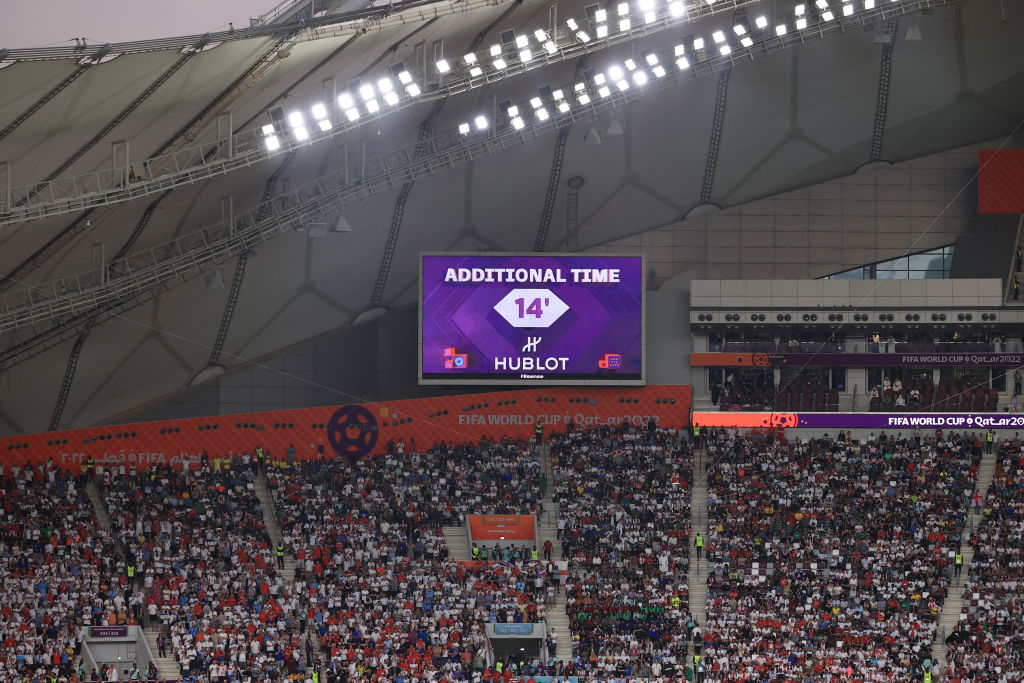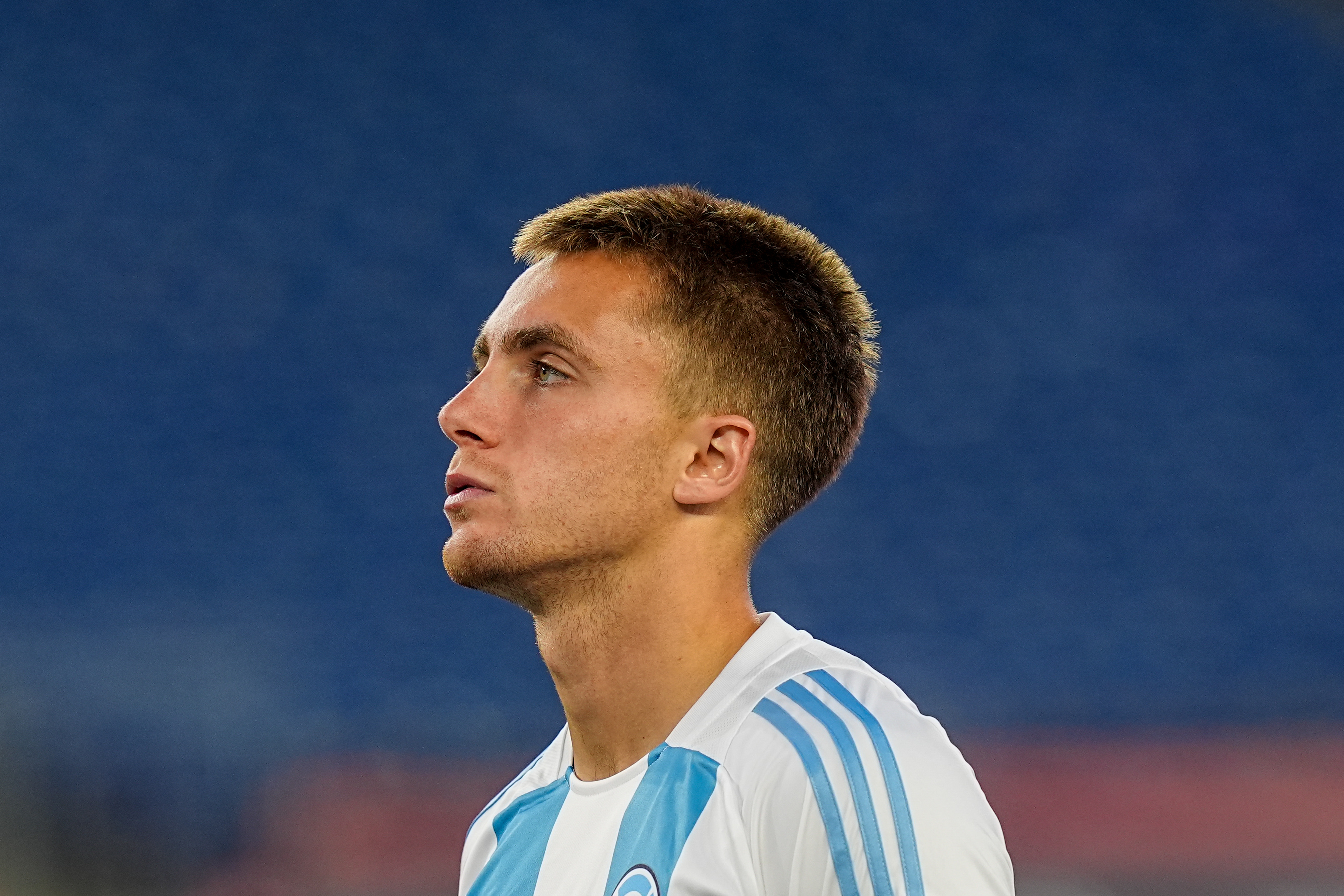Why is so much time being added on at World Cup 2022?
FIFA is making an effort to properly calculate time lost at the end of each half, leading to large chunks of stoppage time

On day two of World Cup 2022, referees added on a total of 59 additional minutes across the three games, as FIFA aim to compensate for the lack of time the ball is in play at the tournament.
That trend has continued over the intervening games, with some referees adding on huge chunks of time to make up for the ball being out of play.
Indeed, England's match against Iran had 29 minutes added on, although a large chunk of that time came because Iran goalkeeper Alireza Beiranvand spent a prolonged period of time down injured in the first half. The game also had eight goals, including a VAR check for a penalty - giving reason as to why so much time was added on.
With the precedent set, though, time continued to be added on in both the Netherlands versus Senegal and Wales against USA. Indeed, the former had 14 additional minutes, while the latter had 16 extra lots of 60 seconds.
However, those games don't provide as clear reasons as to why so much time was added on. After all, only two goals were scored in both matches, and neither had a player which suffered from an injury which kept them down for lengthy times in the game.
So, why is so much time being added on at World Cup 2022?
Well, prior to the tournament kicking off, Chairman of the FIFA Referees Committee, Pierluigi Collina, warned players to prepare for much longer stoppage time in games in order to make up for lost time in each half.
The best features, fun and footballing quizzes, straight to your inbox every week.
"Celebrations might last one or one and a half minutes,’ he said. "It’s easy to lose three, four or five minutes, and this has to be compensated at the end.
"We want to avoid matches lasting for 40-45 minutes of active play. This is unacceptable."
Consequently, this clamp down on time-wasting presents a welcome change by FIFA, with the organisation making a concerted effort to provide fans with the full spectacle they have paid for - in other words, reaching as close to 90 minutes of play as possible.
Games are therefore lasting more than 100 minutes because of this reason, and will continue to do so for the remainder of the tournament.
Collina also referred back to the 2018 World Cup, suggesting effort was placed back then to ensure more time was added on at the end of each half.
“What we already did in Russia was to more accurately calculate the time to be compensated. We told everybody to don’t be surprised if they see the fourth official raising the electronic board with a big number on it, six, seven or eight minutes.
“If you want more active time, we need to be ready to see this kind of additional time given. Think of a match with three goals scored. A celebration normally takes one, one and a half minutes, so with three goals scored, you lose five or six minutes.
“What we want to do is accurately calculate the added time at the end of each half. It can be the fourth official to do that, we were successful in Russia and we expect the same in Qatar."

Ryan is a staff writer for FourFourTwo, joining the team full-time in October 2022. He first joined Future in December 2020, working across FourFourTwo, Golf Monthly, Rugby World and Advnture's websites, before eventually earning himself a position with FourFourTwo permanently. After graduating from Cardiff University with a degree in Journalism and Communications, Ryan earned a NCTJ qualification to further develop as a writer while a Trainee News Writer at Future.
